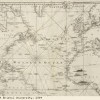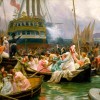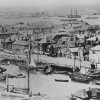Call for Papers for the following conference, Self, Other & Elsewhere: Images & Imagination in the Port Cities of Atlantic & Mediterranean Europe, held in Bordeaux 11th – 12th May. In these times when urban marketing is being applied to outline the identity of our cities with a view to promoting it more effectively, this […]






